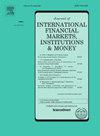银行的环境参与是否会影响融资成本?
IF 6.1
2区 经济学
Q1 BUSINESS, FINANCE
Journal of International Financial Markets Institutions & Money
Pub Date : 2025-06-05
DOI:10.1016/j.intfin.2025.102184
引用次数: 0
摘要
尽管对企业环境绩效的研究越来越多,但银行环境参与对融资成本的影响仍不清楚。虽然一些证据表明,致力于环保的银行获得了较低的融资成本,但其他研究报告没有显著影响,因此证据不确定。本研究通过分析全球样本中不同的融资成本指标来解决这种不一致性,并证明具有强大环境参与的银行始终受益于多个维度的融资成本降低。这种优势在发达、集中度较低、货币较坚挺、存款水平较低的经济体的银行中更为明显。《巴黎协定》提高了存款人和投资者对自己在减缓气候变化中的作用的认识。虽然这种支持通常是由健全的风险管理、资本充足率和资产规模驱动的,但实际利率上升和经济危机时期将优先考虑更高的财务回报。我们的结果在可选样本、模型规格、估计方法、资金成本度量和内质性校正技术中都是稳健的。本文章由计算机程序翻译,如有差异,请以英文原文为准。
Does Banks’ environmental engagement impact funding costs?
Despite growing research on corporate environmental performance, the effect of banks’ environmental engagement on funding costs remains unclear. While some evidence suggests that environmentally committed banks secure lower funding costs, other studies report no significant effect, leaving the evidence inconclusive. This study addresses this inconsistency by analysing distinct funding cost measures in a global sample and demonstrating that banks with strong environmental engagement consistently benefit from reduced funding costs across multiple dimensions. The advantage is more pronounced among banks in advanced, less concentrated economies with stronger currencies and lower deposit levels. The Paris Agreement has raised awareness among depositors and investors about their role in mitigating climate change. Although such support is generally driven by sound risk management, capital adequacy, and asset size, periods of rising real interest rates and economic crises shift priorities toward higher financial returns. Our results remain robust across alternative samples, model specifications, estimation methods, funding cost measures, and endogeneity correction techniques.
求助全文
通过发布文献求助,成功后即可免费获取论文全文。
去求助
来源期刊
CiteScore
6.60
自引率
10.00%
发文量
142
期刊介绍:
International trade, financing and investments, and the related cash and credit transactions, have grown at an extremely rapid pace in recent years. The international monetary system has continued to evolve to accommodate the need for foreign-currency denominated transactions and in the process has provided opportunities for its ongoing observation and study. The purpose of the Journal of International Financial Markets, Institutions & Money is to publish rigorous, original articles dealing with the international aspects of financial markets, institutions and money. Theoretical/conceptual and empirical papers providing meaningful insights into the subject areas will be considered. The following topic areas, although not exhaustive, are representative of the coverage in this Journal. • International financial markets • International securities markets • Foreign exchange markets • Eurocurrency markets • International syndications • Term structures of Eurocurrency rates • Determination of exchange rates • Information, speculation and parity • Forward rates and swaps • International payment mechanisms • International commercial banking; • International investment banking • Central bank intervention • International monetary systems • Balance of payments.

 求助内容:
求助内容: 应助结果提醒方式:
应助结果提醒方式:


